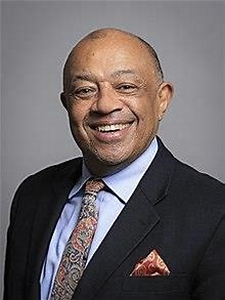Sworn in with Diane Abbott in 1987, Paul Boateng made History when he became the first Black cabinet minister in the UK, as chief secretary to the Treasury.
On his appointment, he was reported to have said: “First and foremost I am a cabinet minister.
“My colour is part of me but I do not choose to be defined by my colour. I work for a world in which people are not judged by their colour but by the content of their character. I want to be judged by my work in this position.”
Born in Hackney, in London, Boateng was of mixed Ghanaian and Scottish heritage; his family moved to Ghana when he was four years old. His father, Kwaku Boateng, was a lawyer and cabinet minister under Kwame Nkrumah. Paul’s life in Africa came to an abrupt end in 1966 after a coup against Nkrumah, who was imprisoned without trial for four years.
At 15-years-old, he and his sister fled to Britain with their mother. Going on, in his later young life, to read law at the University of Bristol, he began his career in civil rights, originally as a solicitor, then retrained as a barrister. Paul was elected to the then Greater London Council for Walthamstow in 1981 - only the second person of Afro-Caribbean descent to do so – where he spoke out, constantly, against racism in relation to the Metropolitan Police’s dealings with the Black and Asian communities.
As a parliamentary candidate for Hertfordshire West, in the 1983 general election he won in the 1987 general election and became the MP for Brent and being one of the first three Black MPs (the others being Bernie Grant and Diane Abbott). During his victory speech he said: “We can never be free in Brent until South Africa is free too.” He then famously declared, “Today Brent South, tomorrow, Soweto!”
He was made a junior Treasury spokesperson in 1989, making him the first Black person to join the front bench of the Labour Party, then, with their victory, becoming the UK’s first Black government minister as Parliamentary Under Secretary of State at the Department of Health, where he was responsible for social services and mental health. In that position, he published guidelines to end the denial of adoptions purely on the basis of race.
A Minister of State at the Home Office, then Number 2 Minister at the home Office. A Privy Councillor in 1999, Boateng earned a reputation for being tough on crime, particularly with regards to aggressive begging on the streets. Due to Boateng’s passion and enthusiasm for the government’s Africa Commission Report and his associations with African leaders, Prime Minister Tony Blair named him the next High Commissioner to South Africa for a term of four years.
In 2001, he was made Financial Secretary to the Treasury, and was promoted to Chief Secretary to the Treasury in May 2002, making history as Britain’s first Black cabinet minister, where he was quoted as saying: “My colour is part of me, but I do not choose to be defined by it.” Paul didn’t stand for re-election as an MP in the 2005 general election, with Dawn Butler being selected by the Constituency Labour Party to replace him. In the 2010 Dissolution Honours Boateng became a member of the House of Lords and was introduced as Lord Boateng of Akyem and Wembley
His maiden speech highlighted the needs of poor and disadvantaged children, both in rural and urban areas.











